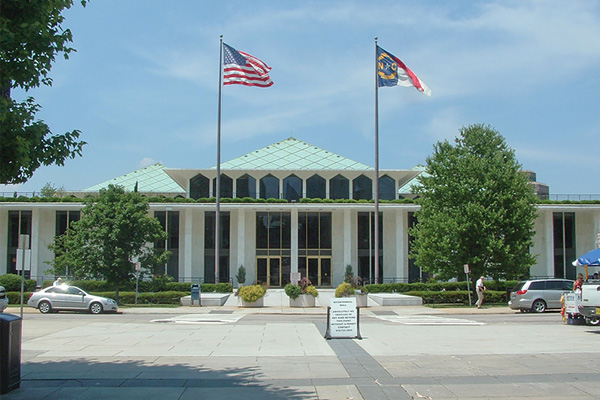The North Carolina state House passed the Pandemic Response Act Thursday, April 30 by a vote of 116-1.
The $1.7 billion COVID-19 response bill mainly deals with how to spend the $3.5 billion in federal money awarded to the state by the CARES Act.
The state Senate passed its own COVID-19 response bill on Wednesday, April 29 by a vote of 48-0.
It might appear that with so much bipartisan agreement in Raleigh over the COVID-19 response bills, that for the House and Senate to agree on the differences and pass one bill to send to Gov. Roy Cooper would be easy, but not necessarily.
The Senate bill was for $1.2 billion originally and then $106 million was added for the Department of Health and Human Services bringing it to $1.3 billion total, which is still $400 million less than the House bill.
The state House and Senate have locked horns in the past over far less than $400 million.
State Senate Majority Leader Sen. Harry Brown sent out a press release Thursday, April 30 listing some of the reasons the Senate is in favor of spending less federal money than the House.
CARES Act money must be spent by Dec. 31, 2020 and can only be used for COVID-19 related expenses. It cannot be used to replace lost state tax revenue.
But Brown states that the Senate thinks the federal guidelines will change and CARES Act money will become “the most flexible resource we have to avoid cutting critical government services or laying off teachers.”
Brown also states that there are other federal funding streams to handle some of the expenses that the House bill pays for with CARES money. He lists the $396 from the School Emergency Relief Fund as one such source.
Brown also states that Congress allocated $100 billion for COVID-19 treatment expenses and that North Carolina had already received $919 million of that money and that there is “plenty more on the way.”
House Speaker Tim Moore has said that he’d like to be able to adjourn on Friday, May 1, which doesn’t leave a lot of time for negotiations.
The most likely outcome is for the House to cut some spending and the Senate add some, so the final bill would be expected to be in the $1.5 billion range, but in politics you never know.

